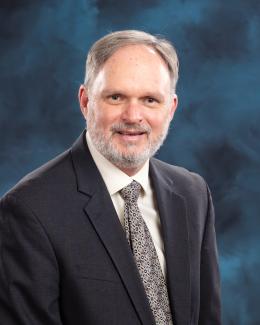Fusion Power Associates (FPA) Board of Directors has selected Mickey Wade, ORNL associate lab director for Fusion and Fission Energy and Science Directorate (FFESD) at the Department of Energy’s Oak Ridge National Laboratory, to receive its 2023 Leadership Award.
In a prepared announcement, the FPA Board noted Wade’s history of positive and significant impact on the development of fusion energy. The Board particularly noted ORNL’s strong role in the national fusion program, Wade’s contributions to ORNL becoming leading center for fusion energy development and deployment, and the record of accomplishment demonstrated by General Atomics’ DIII-D program while Wade served as director.
“I am honored to receive the FPA 2023 Leadership Award. This award recognizes ORNL’s leadership in fusion energy research and development, as well as ORNL’s commitment to making fusion energy a viable power source for our nation and the planet,” said Wade. “The future of fusion and fission energy systems in meeting the world’s clean energy aspirations is bright.”
FPA is a non-profit, tax-exempt research and educational foundation that provides information on the status of fusion development and other applications of plasma science and fusion research. FPA Leadership Awards have been given annually since 1980 to recognize persons who have shown outstanding leadership qualities in accelerating the development of fusion as a commercial power source.
John Frenje of the Plasma Science and Fusion Center at the Massachusetts Institute of Technology joins Wade in being recognized with an FPA 2023 Leadership Award. The awards will be presented at the FPA 44th Annual Meeting and Symposium, to be held in December in Washington, DC.
UT-Battelle manages ORNL for DOE’s Office of Science, the single largest supporter of basic research in the physical sciences in the United States. DOE’s Office of Science is working to address some of the most pressing challenges of our time. For more information, visit https://energy.gov/science.



